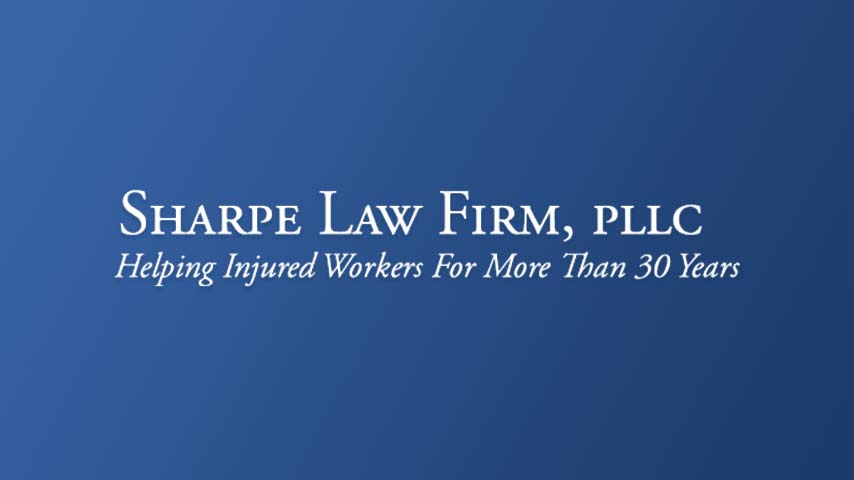Do Washington State Firefighters/EMT’s/and Law Enforcement Officers Get Helpful Workers Compensation Occupational Disease Presumptions?
Yes. Washington State Firefighters, EMT’s and Law Enforcement Officers do benefit from helpful occupational disease presumptions in Washington State
CANCER/ HEART PROBLEMS/ RESPIRATORY DISEASE/ INFECTIOUS DISEASE
RCW 51.32.185 and WAC 296.14.310 provide a helpful presumption of occupational disease for respiratory diseases, heart problems, cancer and infectious diseases.
For firefighters and EMTs those conditions are heart problems experienced within 72 hours of exposure to smoke, fumes, or toxic substances; or experienced within 24 hours of strenuous physical exertion due to firefighting activities; respiratory disease; specific cancers; infectious diseases; and post traumatic stress disorder (PTSD).
For fire investigators those conditions are heart problems experienced within 72 hours of exposure to smoke, fumes, or toxic substances, or experienced within 24 hours of strenuous physical exertion due to firefighting activities; respiratory disease; specific cancers; and infectious diseases.
For law enforcement officers those conditions are heart problems experienced within 72 hours of exposure to smoke, fumes, or toxic substances, or experienced within 24 hours of strenuous physical exertion in the line of duty; infectious diseases; and PTSD.
Firefighter occupational disease FAQ’s with helpful answers.
STRESS/PTSD
RCW 51.08.142 and WAC 296.-14-310 provide a helpful presumption allowing post-traumatic stress disorder to be treated as an occupational disease. The cause of the stress must be job related but not part of human resource personnel action. More info: PTSD & First Responders
What is a Presumption?
A presumption is a legal inference that should be made after a showing of certain facts. For example; show that you are a firefighter diagnosed with a specified cancer and it will be presumed it happened on the job. A presumption makes proof easier and less expensive.
Why is a Presumption Helpful?
Proof of L&I occupational disease claims has always been difficult and expensive. Proof of the matter is required to win a claim. A presumption establishes facts which help prove claims. This saves time and money. Without a presumption a claimant must prove their diagnosis and its relationship to work. With the presumption, when you prove the diagnosis, it will be presumed to be related to your work. A presumption makes proof easier and less expensive.
What is a Rebuttable Presumption?
A rebuttable presumption is a presumption which can be over come with a showing of facts sufficient to outweigh and shift the burden of proof. For example; you are a firefighter diagnosed with a specified cancer (presumption applies) and have a history of previous tobacco use (this may rebut the presumption). You can still win this case, but if the presumption is rebutted then to be successful you must present enough proof so that more likely than not the medical condition is at, at least in part, caused by a job injury or occupational disease.
Presumptions Can Be Challenged. Typical Challenges to the Presumption Include but are Not Limited to:
- Use of tobacco products WAC 296-14-310(7) and WAC 296-14-320
- Poor physical fitness
- Over weight
- Lifestyle
- Hereditary factors
- Exposure from other employment or non-employment activities
Who Qualifies as a Firefighter, a Fire Investigator or an EMT?
For the purpose of this law, firefighters are defined as public firefighters and private firefighters (if department includes over 50 firefighters) including supervisors, that are employed full-time, and fully compensated. Public employee fire investigators are also included. Full-time, fully compensated emergency medical technicians are also included in the definition of firefighter. For details see RCW 41.26.030 (17) (a), (b), (c), and (h) which set the definition of “Firefighter”. The presumption applies to these fire fighters, law enforcement officers, and EMT’s WAC 296-14-310.
“Firefighter” is defined in RCW 41.26.030 (17)
(a) Any person who is serving on a full time, fully compensated basis as a member of a fire department of an employer and who is serving in a position which requires passing a civil service examination for firefighter, and who is actively employed as such.
(b) Anyone who is actively employed as a full-time firefighter where the fire department does not have a civil service examination.
(c) Supervisory firefighter personnel.
(d) Any full-time executive secretary of an association of fire protection districts authorized under RCW 52.12.031. The provisions of this subsection (17)(d) shall not apply to plan 2 members.
(e) The executive secretary of a labor guild, association or organization (which is an employer under subsection (14) of this section), if such individual has five years previous membership in a retirement system established in chapter RCW 41.16 or RCW 41.18. The provisions of this subsection (17)(e) shall not apply to plan 2 members.
(f) Any person who is serving on a full time, fully compensated basis for an employer, as a fire dispatcher, in a department in which, on March 1, 1970, a dispatcher was required to have passed a civil service examination for firefighter.
(g) Any person who on March 1, 1970, was employed on a full time, fully compensated basis by an employer, and who on May 21, 1971, was making retirement contributions under the provisions of RCW 41.16 or RCW41.18 For consideration of a cancer presumption, the active or former firefighter or fire investigator must serve at least ten years before the cancer develops.
(h) EMT – Any person who is employed on a full-time, fully compensated basis by an employer as an emergency medical technician that meets the requirements of RCW 18.71.200 or RCW 18.73.030(12), and whose duties include providing emergency medical services as defined in RCW 18.73.030.
Does the Presumption Law Also Apply to Law Enforcement Officers?
Some of the presumptions apply to law enforcement officers. RCW 51.32.185 (1)(c)
Who Qualifies as a Law Enforcement Officer?
Law enforcement officers are defined as any person who is commissioned and employed on a fulltime, fully compensated basis to enforce the criminal laws of the state of Washington. RCW 41.26.030 (19) (b)(c)&(e).
What if the Presumption does not Apply to me Because I Don’t Qualify as a Firefighter, Fire Investigator, EMT, Law Enforcement Officer?
You may still have a valid claim for occupational disease for heart problems, respiratory disease, or infections. You can still win your case. You will need to prove your diagnosis and it’s causal relationship to your job(s) without the benefit of the presumption.
For PTSD, if you don’t qualify as a first responder, you will need to prove injury rather than occupational disease.
Your doctor’s opinion and their willingness to help will be important to the proof of your case.
Are you Almost a First Responder?
Prison guards, trauma nurses, public health workers, abortion clinic workers, poll workers, election officials, western state employee and many other workers get PTSD from their job.
If you are almost but not quite a first responder with PTSD, you can still have a successful L&I PTSD injury claim. One significant event causing PTSD is required to be successful. One significant event or one significant event in a series of events can be proven to be a PTSD L&I INJURY.
All workers in Washington State who get PTSD because of one stressful event can have an L&I injury claim.
Which CANCERS are Covered by the Presumption Law?
The covered cancers are:
- Prostate cancer (diagnosed prior to the age of 50)
- Primary brain cancer
- Malignant melanoma
- Leukemia
- Non-Hodgkin’s lymphoma
- Bladder cancer
- Ureteral cancer
- Colorectal cancer
- Multiple myeloma
- Testicular cancer
- Kidney cancer
- Mesothelioma
- Stomach cancer
- Non-melanoma skin cancer
- Breast cancer in women
- Cervical cancer
This presumption only applies to firefighters, EMTs, or fire investigators whose cancer develops or manifests itself after they:
- Have served at least 10 years before the cancer develops WAC 296-14-310(6), and
- Were given a qualifying medical examination that showed no evidence of cancer at the time of hire.
What if the Presumption Doesn’t Apply to My Cancer?
You may still have a valid claim for occupational disease. You can still win your case. You will need to prove your diagnosis and it’s causal relationship to your job(s) without the benefit of the presumption.
Your doctor’s opinion and their willingness to help will be important to the proof of your case.
Is POSTTRAUMATIC STRESS DISORDER (PTSD) in Firefighters, EMTs, and Law Enforcement Officers a Covered Presumption?
Effective June 7, 2018, RCW 51.32.185 was expanded to include the presumption that Post Traumatic Stress Disorder (PTSD) was an occupational disease. For firefighters, EMTs, and Law Enforcement Officers, there shall exist a prima facie presumption that post traumatic stress disorder is an occupational disease under RCW 51.08.140 and WAC 296-14-300
For consideration of a PTSD presumption, the active or former firefighter or law enforcement officer must work on or after July 7, 2018, and serve at least 10 years before the PTSD develops. WAC 296-14-310(5)
The Following Criteria Must Be Met for the PTSD Presumption to Apply:
- The worker must have had a mental health examination administered by a psychiatrist or a psychologist that ruled out the presence of PTSD from pre-employment exposures. Or, they did not receive an examination because none was required.
- PTSD manifested after the individual has served at least 10 years.
- Have a PTSD diagnosis that meets the diagnostic criteria specified by the American Psychiatric Association in the diagnostic and statistics manual of mental disorders, fifth edition, or in a later edition as adopted by the department RCW.51.08.142.
- If a worker experiences a single, traumatic event that leads to a mental condition this would not be considered under the presumption law. Instead, this would be reviewed as a specific injury claim. Injury claims for PTSD can be won, even without the presumption. If you have PTSD that needs treatment – FILE A CLAIM!
Want More PTSD Information? PTSD & First Responders Legal Information for Washington State
Which INFECTIOUS DISEASES in Firefighters, Fire Investigators, EMTs and Law Enforcement Officers are Covered by the Presumption Law?
Certain infectious diseases are presumed to be an occupational disease for firefighters, fire investigators, EMTs and law enforcement officers.
The covered infectious diseases are:
- Human immunodeficiency virus (HIV)
- Acquired immune deficiency syndrome (AIDS)
- Hepatitis (all strains)
- Meningococcal meningitis
- Mycobacterium tuberculosis
What is the Presumption for HEART PROBLEMS in Firefighters, EMTs, Fire Investigators and Law Enforcement Officers
Heart problems are presumed to be job related as an occupational disease for firefighters, fire investigators, EMT’s and law enforcement officers if they are experienced:
- Within 72 hours of exposure to smoke, fumes, or toxic substances, or
- Within 24 hours of strenuous physical exertion in the line of duty (for law enforcement officers) or due to firefighting activities (for firefighters).
Former smokers still get the presumption if they last smoked two years or more prior to the cardiac event WAC 296-14-325.
After the applicable employment ends, coverage is extended for three calendar months for each year of service, up to a maximum of 60 months from the last date the worker was employed.
For claims filed on or after July 1, 2003, this presumption of coverage does not apply if the worker regularly uses tobacco products, and it may not apply if the worker has a history of tobacco use. If the presumption does not apply or is rebutted, the burden is then on the worker to prove the condition is a job related occupational disease.
Heart and Lung Conditions for Former Smokers
The following table applies to explain when former smokers will get the presumption for heart and lung conditions.
| Medical condition | Presumptions shall not apply | Presumption shall apply |
|---|---|---|
| Heart problems experienced within seventy-two hours of exposure to smoke, fumes, or toxic substance | Firefighters, EMTs, fire investigators, and law enforcement officers that are current smokers | Firefighters, EMTs, fire investigators, and law enforcement officers that never smoked tobacco |
| Firefighters, EMTs, fire investigators, and law enforcement officers that are former smokers and last smoked less than two years prior to the cardiac event | Firefighters, EMTs, fire investigators, and law enforcement officers that are former smokers and last smoked two years or more prior to the cardiac event | |
| Asthma | Firefighters, EMTs, and fire investigators that are current smokers | Firefighters, EMTs, and fire investigators that never smoked tobacco |
| Firefighters, EMTs, and fire investigators that are former smokers and last smoked less than five years before date of manifestation of the disease | Firefighters, EMTs, and fire investigators that are former smokers and last smoked five years or more before date of manifestation of the disease | |
| Chronic obstructive pulmonary disease/emphysema/chronic bronchitis | Firefighters, EMTs, and fire investigators that are current smokers | Firefighters, EMTs, and fire investigators that never smoked tobacco |
| Firefighters, EMTs, and fire investigators that are former smokers and last smoked less than 15 years before date of manifestation of the disease | Firefighters, EMTs, and fire investigators that are former smokers and last smoked 15 years or more before date of manifestation of the disease | |
| Lung cancer | Firefighters, EMTs, and fire investigators that are current smokers | Firefighters, EMTs, and fire investigators that never smoked tobacco |
| Firefighters, EMTs, and fire investigators that are former smokers and last smoked less than 15 years before date of manifestation of the disease | Firefighters, EMTs, and fire investigators that are former smokers and last smoked 15 years or more before date of manifestation of the disease |
Legal Fees in Litigated Presumption Claims.
You may be able to get your attorney fees paid by your employer, when a determination involving these presumptions is appealed to the Board of Industrial Insurance Appeals (BIIA) or any court, and the final decision allows the claim, the opposing party must pay all reasonable costs of the appeal to the worker or their beneficiary including attorney fees and witness fees.
How Long Will These Presumptions Last After Employment Ends?
The presumption extends to covered members after the last date of employment for a period of three calendar months for each year of service. The presumption may not extend more than 60 months after the last date of employment WAC 296-14-310(4).
Why do First Responders get a Special Occupational Disease Presumption?
First responders do the heavy lifting in the world of human tragedy. Every time a firefighter, a law enforcement officer, or EMT pulls another lifeless body from the scene of a tragic accident, some of that tragedy rubs off on them. Every time they rescue and console a burned-out family who has lost everything, it chokes them up too. Each time they risk their lives while breathing cancer causing smoke, their life thereafter is affected by that. Over time these repeated experiences add up. The cumulative experiences of tragedy and exposure to toxic fumes, smoke and chemicals are what makes an occupational disease.
First responders are there for us when we need them. Now this law and it’s presumptions are here for them.
How Do I File a Claim?
If you employer was State Fund: You can file the accident report at your doctor’s office, or on L&I’s website 24 hours a day (filefast.lni.wa.gov), or by calling L&I at 877-561-3453 Monday through Friday, 8 a.m. to 5 p.m. If you complete the accident report at your doctors office, the doctor files the form for you.
If you employer was self-insured: Contact your employer and they will supply you with a Self-Insurer Accident Report (SIF-2) and can discuss the process in detail with you. Please complete the form and return it to them as soon as possible.
If you not sure if your employer is self-insured or State Fund, contact your employer and they can assist you.
Penalty for Violating Good Faith and Fair Dealings with for municipalities and firefighter employers.
A self insured municipal employer’s and self – insured private sector firefighter employers and their their third-party administers have a duty of good faith and fair dealing to workers with respect to all aspects of workers compensation.
The Department of Labor and Industries (LNI) is required to enforce the duty of good faith and fair dealing.
Penalties can be assessed for violations of the duty.
The Director shall withdraw a self-insured municipal employer’s certification as a self-insurer if the employer violates the self-insurer’s duty of good faith and fair dealing three times within a three-year period.
Other Applicable Laws
RCW 18.71.200 – Physician’ trained advanced emergency medical technician and paramedic-definition
RCW 18.73.030 – Definitions
RCW 41.26.030 – Definitions
RCW 51.08.140 – Occupational Disease











